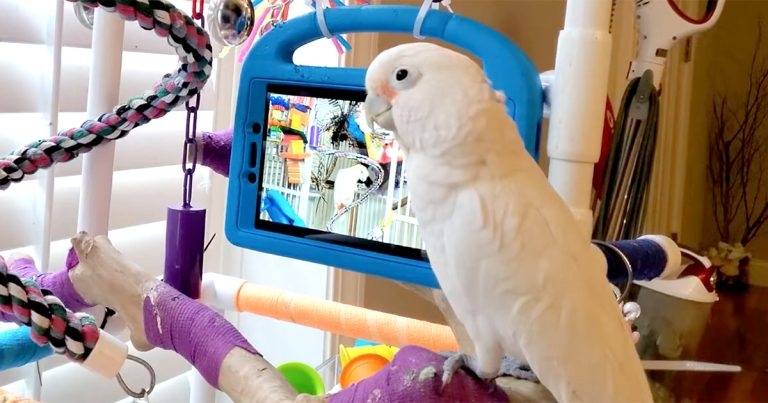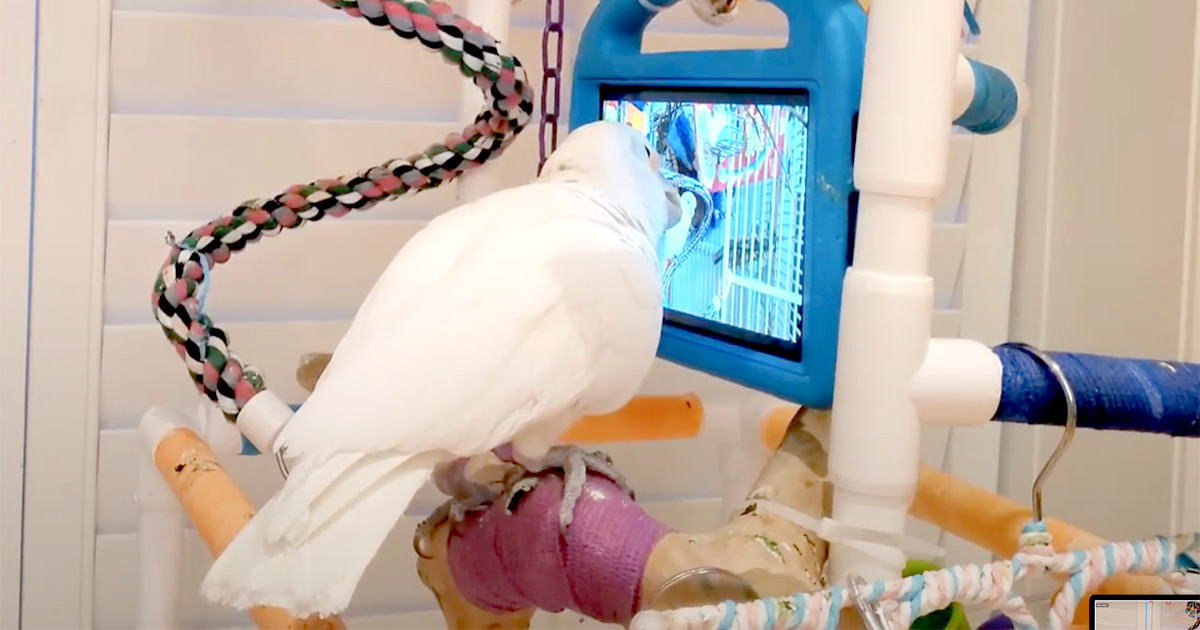3 May 2024
According to University of Glasgow research, given the choice, the birds prefer live interaction with others of their kind.

A parrot “watching” a pre-recorded video.
Pet parrots are all about live video interaction with fellow birds rather than pre-recorded videos, according to researchers.
A study led by animal-computer interaction specialists at the University of Glasgow provided tablet devices to nine parrots and their owners to explore the potential for video chats to expand the birds’ social lives.
The results suggest the birds could tell the difference between live and pre-recorded content on digital devices, and strongly preferred interacting with other birds in real time.
During the course of the six-month study, the birds chose to initiate calls with other birds more often than watch pre-recorded content, and appeared much more engaged.
Previous research led by Ilyena Hirskyj-Douglas at the university had explored the potential of video calling to reduce loneliness in parrots but the latest paper could help steer an emerging trend for “animal internet” to empower animals to interact with humans or each other.

Dr Hirskyj-Douglas said: “In this study, we wanted to see if we could identify differences in behaviour when parrots were given agency over what they could see on their devices. Would they notice when the pre-recorded parrot on the screen didn’t respond the same way a live one did? And if so, what could that tell us about designing future systems to fit their needs?”
Dr Hirskyj-Douglas added: “This was a small study, and we can’t draw any definite conclusions at this stage about whether the parrots were in some way aware of the differences between live and pre-recorded interactions. However, the results are compelling and suggest that further study is definitely warranted.
“The internet holds a great deal of potential for giving animals agency to interact with each other in new ways, but the systems we build to help them do that need to be designed around their specific needs and physical and mental abilities. Studies like this could help to lay the foundations of a truly animal-centred internet.”